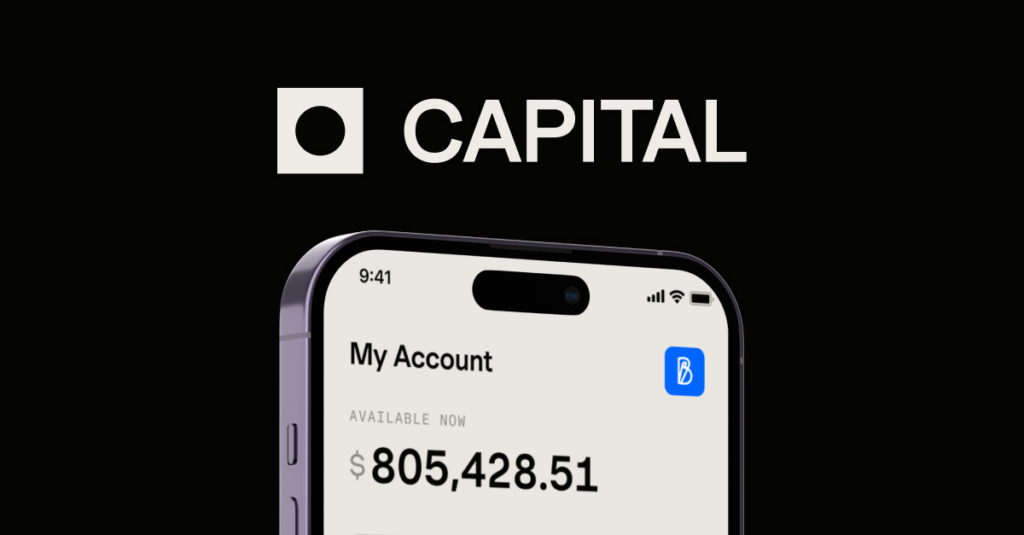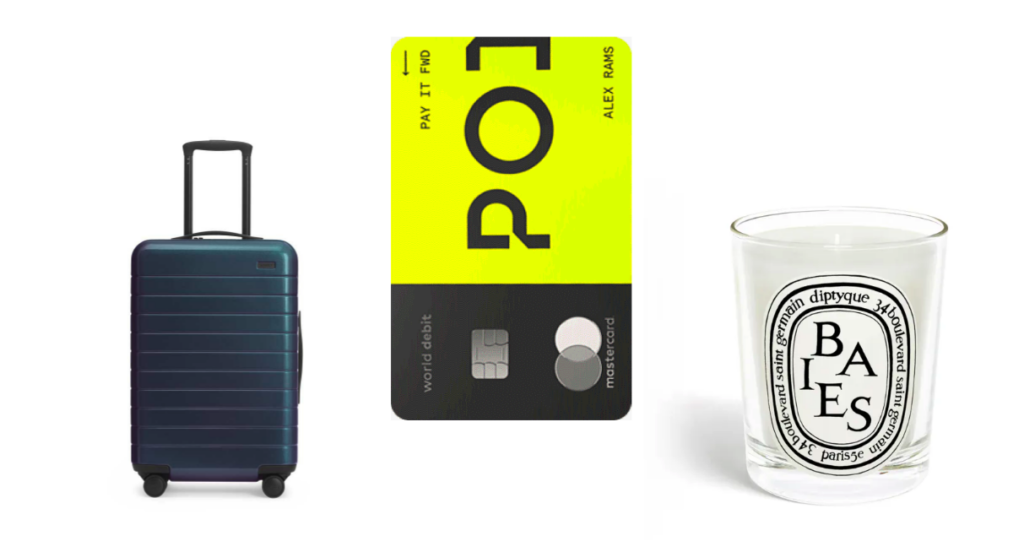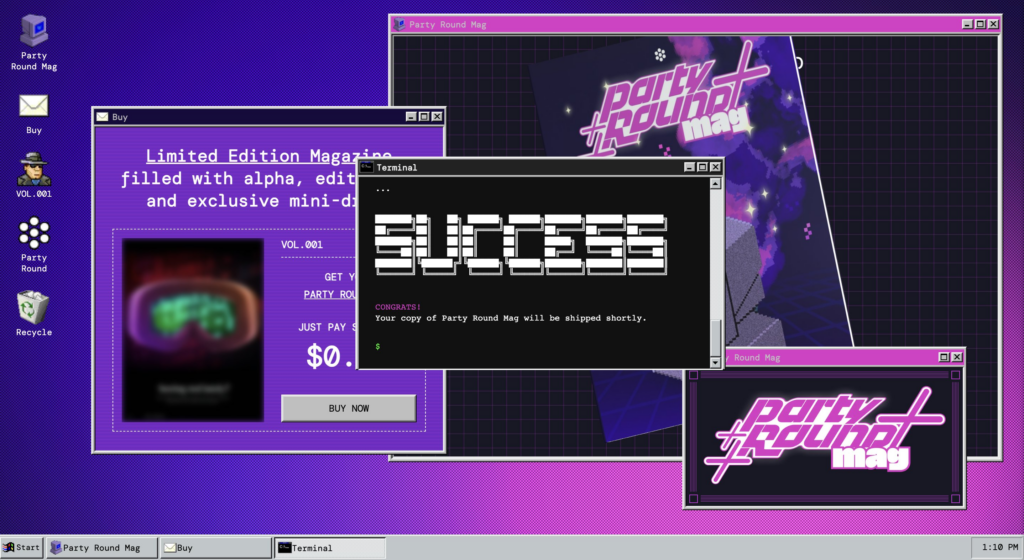15 October 2022 | Investments
Capital: May the Best Marketer Win
By
FINTECH
Capital: May the Best Marketer Win
- This week Party Round re-launched Capital
- Party Round became famous in tech circles for semi-satirical product drops like an NFT collection of ‘Helpful’ VCs and a ‘90s-style game about blowing VC dollars
- With Capital they’re expanding to become a full stack fintech platform for founders: checking accounts, credit cards, payments

Attention → Dollars
Fintech is becoming a marketing business. That’s an arena where Party Round has an edge.
By some estimates, one in five venture dollars goes into fintech. That capital is pouring into marketing funnels as companies try and bring on a critical mass of users to raise to justify their next, bigger round. Competition has never been fiercer.
But over the past year, Party Round has built a viral brand with a niche audience: startup founders.
People in tech love Party Round drops. The team has their finger on the pulse of the tech zeitgeist and they’ve used it masterfully to generate hype for their company.
When Cometeer was trending they launched Party Grounds.

At the peak of the market they dropped Burn the Runway, to satirize how fast companies were spending marketing dollars.

When I had founder Jordi Hays on the Just Raised podcast he talked about engineering vitality:
A lot of people have this idea that by reality on the internet, it’s sort of random you can’t manufacture it, et cetera.
I think that’s totally false. I think it is true if you’re in a situation where you’re Coca-Cola and you’re like, Hey, Coca-Cola is telling their marketing agents. We want to go viral, please make us go vira.
But when you have a subculture like tech Twitter and the startup community that we’re a part of it’s actually completely possible to what I call manufactured virality.
Almost every single thing that we’ve done on the marketing side we knew it was going to go viral. We were the audience for it.
— Jordi Hays, CEO at Party Round
There’s a case to be made Capital will work for the same reason Kim Kardashian’s PE firm is a great idea, Red Bull does $6.3B in revenue, an a three year old canned water company is worth three-quarters of a billion dollars.
Distribution and an unfair advantage in customer acquisition.

What’s the difference between selling a new credit card, a new line of candles, or a suitcase?
Mainly that fintech has an asymmetric downside. If you sell too many credit cards to consumers that default you could suddenly be out a hundred million dollars. That may not drive you into bankruptcy but it will obliterate profits.
Fintech is a Marketing Business
What do Captain Crunch, Capital One, and the GEICO Gecko have in common?
Commercials. And massive marketing budgets to fund them.
CPGs, insurance companies, and banks are commodity businesses. They sell products that are nearly identical and are so competitive and transaction they can’t be effectively differentiated. So how do they stand out?

I assume shareholders would prefer GEICO didn’t spend millions bringing a CGI Gecko to life but it’s the best way they’ve found to stand out among the hundreds of insurance companies competing for your dollars.
I’d argue that we’re now in the same place for fintech. Checking accounts, credit cards, loans — despite what the billboards and subway ads might tell you, these products haven’t actually changed in decades.
What fintechs really do is provide a beautiful software wrapper around legacy banking products. That alone would make for a great business but with the number of fintech growing like a weed and banks starting to catch up… it’s tough out there.
Redbull for Fintech
Capital’s edge is that it can command attention without spending marketing dollars. They can do drops to generate brand awareness. They can tap their audience of founders to land customers.
That should score them lower customer acquisition costs than competitors.
You won’t pick Capital for the interest rate — although I’m sure their interest rates will be identical to everyone else’s — you’ll pick them for the brand. Just like insurance, banking, fashion, and cereal.

From the Party Mag drop
There are risks. While they may have lower customer acquisition costs, more mature competitors have spent years building deep banking infrastructure which should give them better margins on their banking products than Capital.
There’s also the risk that as startups scale they’ll transition to larger banks for a broader feature set.
But these are the risks for every new fintech. The real question is whether Capital can carve out a space for its brand in a sea of brands competing for founders’ attention. If history is anything to go on I’d bet the answer is yes and we’ll be seeing more drops from Capital very soon.
PRODUCT SPOTLIGHT
Google’s Project Starline
Google is solving Zoom calls. With physics.
What: Google’s experimental Project Starline is like a hologram phone booth. You step in and on the wall in front of you whoever your chatting with is projected in full 3D, with a rendering that’s far more realistic than video.
Reviews: In the Youtube clip users describe it as ‘mind-blowing’. The Verge got their hands on one and titled their article about it: A meeting in Google’s 3D chat booth felt like real life science fiction.

Customers: Now Google’s announced its launching with a few corporate customers including WeWork, Salesforce, and T Mobile.
How It Works: Starline uses an array of 3D cameras and depth sensors to map subjects in 3D, new software to compress that 3D data and send it across the web, and layers of lenses over a screen to display it on the other side.
Takeaway: In a world of VR metaverses, Starline is refreshing. It feels like a physics breakthrough. Like the telephone or the dishwasher or HD flat-screen TVs, we could all have Starline projectors in our homes and offices in the future. That kind of magical physical product is rare these days.
EXTRA! EXTRA!
In Other News…
Inflation is up again. September’s CPI shows 8.2% inflation YoY barely changed from August’s 8.3%. The Fed is going to have to keep raising rates.
Apple is selling ad slots for Apple TV Plus. The ads tier follows Prime’s launch of Freevee earlier this year and Netflix’s launch of a $7 ad tier coming November 3rd.
We dove into why every tech company is launching ads in Ads are inevitable. TLDR: Growth is slowing and flipping on ads will generate new revenue fast.
Apple and Goldman Sachs are launching high yield savings accounts for Apple Card members
Amazon announces Amazon Catalytic Capital, a $150M VC firm focused on underrepresented founders.
Instacart cut its valuation to $13B, down from $39B valuation in its last VC round from Andreessen Horowitz and Sequoia Capital last year.
VC FUNDING
Uniswap
Raise: $165M from
Including: Paradigm, A16Z Crypto, and Variant
One Liner: Decentralized crypto exchange

Uniswap is one of a handful of exchanges that’s won crypto. There are a ton out there.
nxyz
Raise: $40M Series A from Sequoia Capital
Including: Paradigm, Greylock, Balaji, Packy McCormick, and Ryan Selkis
One Liner: Crypto data API

Maybe the most interesting thing about crypto is that it runs on open, public data. All transactions on a blockchain are public. You might not know who owns an account but you can see every single traction for every account on-chain.
That means you can generate live financial statements for crypto companies. You can see how many active users an apps has, the size and volume of purchases, and even track things like cohort analysis.
The only problem is that data is very hard to decipher. Today those kinds of insights are mainly only available to crypto analysts. nxyz is changing that with a fast API for developers to search the world of crypto data.
Dune Analytics is doing something similar with dashboards.
ONE FUN THING
If your startups was an F1 car:

From Lenny’s Newsletter